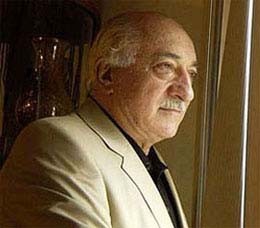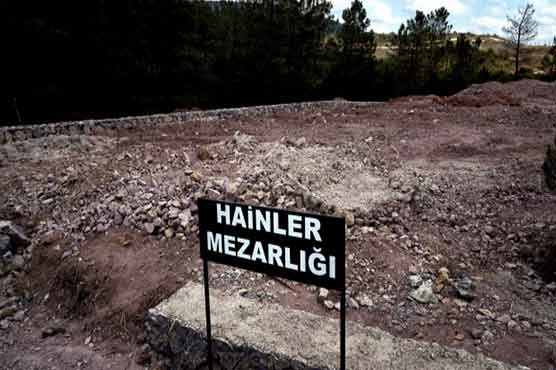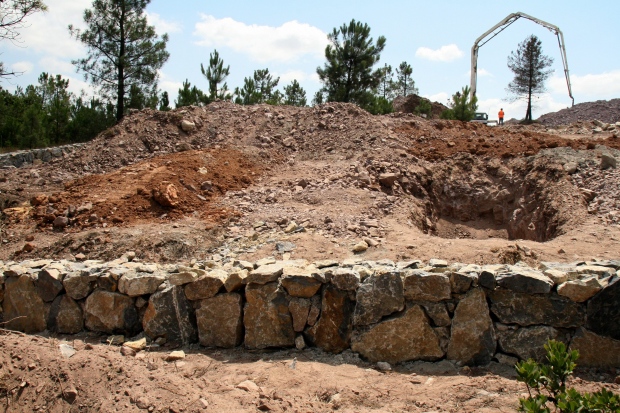http://www.reuters.com/article/us-turkey-security-idUSKCN10912T
Turkey shakes up armed forces, U.S. says purges harming cooperation
Turkey has begun overhauling its armed forces following a failed coup, but its NATO ally the United States complained that the purges of generals and officers were hindering cooperation in the fight against Islamic State.
The military announced late on Thursday the promotion of 99 colonels to the rank of general or admiral, part of a shake-up that left General Staff chief Hulusi Akar and the army, navy and air force commanders in their posts.
The announcement came shortly after the dishonorable discharge of nearly 1,700 military personnel over their alleged roles in the abortive July 15-16 putsch, in which at least 246 people were killed and more than 2,000 injured. About 40 percent of all generals and admirals have been dismissed since the coup.
President Tayyip Erdogan, who ordered the restructuring, accuses U.S.-based Muslim preacher and scholar Fethullah Gulen of orchestrating the coup and wants Washington to extradite him.
Turkish authorities have launched a series of mass purges of suspected Gulen supporters, suspending, detaining or putting under investigation tens of thousands of police, judges, teachers, diplomats, journalists and others since the coup.
The number of public sector workers removed from their posts since the coup attempt now stands at more than 66,000, including some 43,000 people in education, the state-run Anadolu news agency reported on Friday.
Gulen denies any involvement in the coup and in an interview published on Friday said Erdogan had been "poisoned" by power.
Erdogan says Gulen, an ally-turned-arch-foe, harnessed his extensive network of schools, charities and businesses, built up in Turkey and abroad over decades, to create a secretive "parallel state" that aimed to take over the country.
The president's critics say Erdogan, who narrowly escaped capture and possible death on the night of the coup, is using the mass purges to crack down indiscriminately on dissent and to tighten his grip on the nation of nearly 80 million.
Erdogan wants to bring the General Staff and the national intelligence agency directly under the president's control, officials say, though he needs the support of opposition parties for such a change that would require a constitutional amendment.
Both the armed forces and the intelligence agency now report to the prime minister. Putting them under the president's overall direction would be in line with Erdogan's push for a new constitution centered on a strong executive presidency.
AMERICAN SECURITY CONCERNS
The United States and the European Union, which Turkey wants to join, have expressed alarm over the scale of the purges.
With long land borders with Syria and Iraq, Turkey is a central part of the U.S.-led military operation against Islamic State. As home to millions of Syrian refugees, it is also the European Union's partner in a deal reached last year to halt the biggest flow of migrants into Europe since World War Two.
The U.S. director of national intelligence, James Clapper, said on Thursday the purges within the Turkish military were having an impact on bilateral cooperation, adding: "Many of our interlocutors have been purged or arrested."
"There's no question this is going to set back and make more difficult cooperation with the Turks," Clapper said.
Foreign Minister Mevlut Cavusoglu shrugged off the concerns, telling reporters on Friday that Turkey's armed forces, "cleansed" of their Gulenist elements, would prove more "trustworthy ... and effective" allies against Islamic State.
Turkey hosts U.S. troops and warplanes at Incirlik Air Base, from which the United States flies sorties against Islamic State militants in Iraq and Syria. Those air operations were temporarily halted following the coup attempt.
The U.S. State Department also said it was "deeply concerned" about the closure of news media outlets in Turkey. The authorities say such closures target only Gulenists, though some journalists detained are known for left-wing secular views and do not share the Gulenists' religious outlook.
Cavusoglu said those detained in the media were not "real journalists". He also said that the coup might have succeeded if the authorities had not already purged the police and judiciary of large numbers of Gulenists in recent years.
"POWER POISONING"
The latest purges have now spread from state institutions, academia and the media to the world of private business.
On Friday police detained the chairman of furniture-to-cables conglomerate Boydak Holding and two company executives as part of the investigation into the "Gulenist Terror Group", state-run Anadolu Agency reported.
Chairman Mustafa Boydak and two group executives, Sukru and Halit Boydak, were held in raids on their homes, it said. Detention warrants were issued for six Boydak family members in total on allegations of financing the Gulen group.
Prosecutors in the Aegean coastal city of Izmir issued orders to detain 200 police on Friday as part of the investigation targeting Gulenists, the Dogan news agency said.
Gulen, who has lived in self-imposed exile in the U.S. state of Pennsylvania since 1999, again maintained his innocence during an interview with Italy's Corriere della Sera newspaper, saying he had himself suffered from previous coups in Turkey.
Asked why his once-warm ties with Erdogan and Turkey's ruling Islamist-rooted AK Party had turned sour, Gulen said: "It appears that after staying in power for too long, (they) are suffering from power poisoning."
Gulen, whose Hizmet (Service) movement stresses the need to embrace scientific progress and inter-faith dialogue, said he still strongly backed Ankara's bid to join the EU, saying this would buttress democracy and human rights in Turkey.
(Additional reporting by Orhan Coskun in Ankara and Steve Scherer in Rome; Writing by Gareth Jones; Editing by Nick Tattersall)










